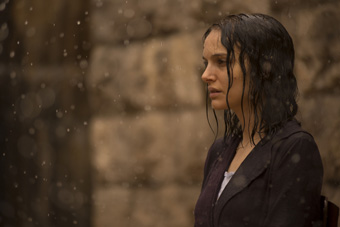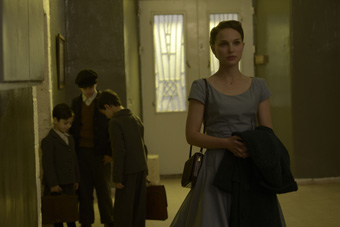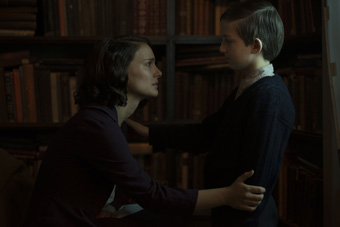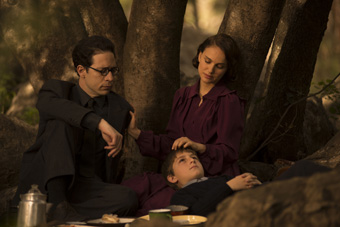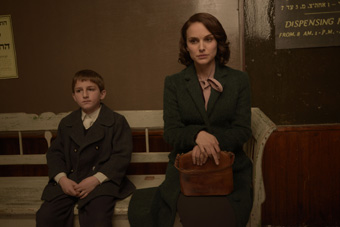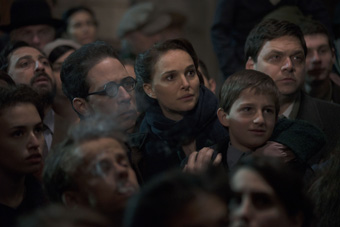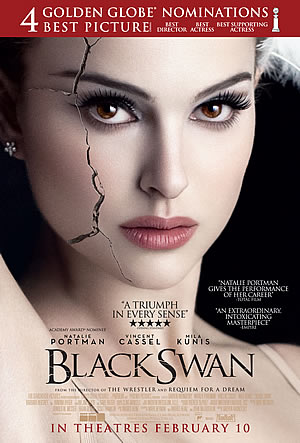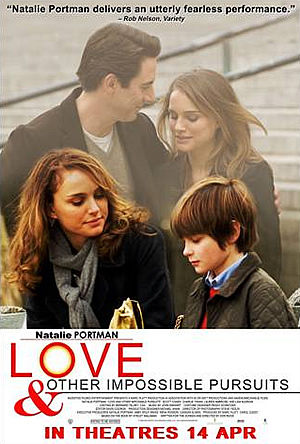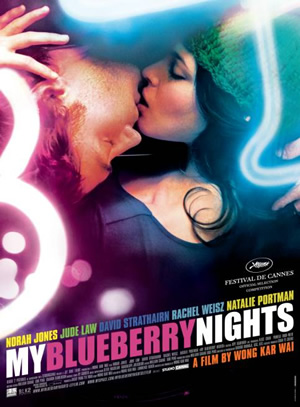A TALE OF LOVE AND DARKNESS (2015)
Genre: Drama/Biography
Director: Natalie Portman
Cast: Natalie Portman, Makram Khoury, Shira Haas, Amir Tessler, Ohad Knoller
Runtime: 1 hr 39 mins
Rating: PG
Released By: Shaw
Official Website: http://www.focusfeatures.com/loveanddarkness
Opening Day: 13 October 2016
Synopsis: Based on Amos Oz's international best-seller, A TALE OF LOVE AND DARKNESS recounts the time Oz spent with his mother, Fania (Natalie Portman), who struggles with raising her son in Jerusalem at the end of the British Mandate for Palestine and the early years of the State of Israel. Dealing with a married life of unfulfilled promises and integration in a foreign land, Fania battles her inner demons and longs for a better world for her son.
Movie Review:
There is more of the latter than the former in Natalie Portman’s behind-the-camera debut, an adaptation of the celebrated memoir of the same name by Israeli novelist Amos Oz which intertwines his coming-of-age tale with that of the early years of the birth of Israel. Oh yes, this is a bleak film through and through, told from the point of view of young Amos (Amir Tessler) spanning the years from 1945, with Palestine in the last throes of British rule, to 1953, the state of Israel firmly established after a seminal United Nations (UN) vote. It is as much Amos’ story as it is that of his emotionally fragile mother Fania (Portman), who had escaped the Holocaust with Amos’ father Arieh (Gilad Kehana) to much sparer conditions – and why not, really, since it was his mother’s tales of fantasies as well as his father’s scholarly inclinations which ultimately inspired his love for storytelling and his eventual calling as an author.
Condensing Oz’s 500-plus page book is no small feat, but Portman, who spent years developing it as her as her feature writing-directing debut, largely succeeds in capturing her protagonist’s growing pains as he watches his mother endure a loveless marriage, yearn for the life she left behind and grow increasingly disillusioned with the promise of Israel. Instead of the macho persona we glimpse through brief dreamy episodes, Fania has wound up with a literary critic whose masculinity is limited to building a garden in their backyard. Often overly serious, Arieh is unable to satisfy Fania’s romantic longings, dreaming of a life resembling the literature she devours. And while Arieh is ecstatic about the creation of the state of Israel through the UN General Assembly’s approval to partition Palestine into Arab and Jewish states, Fania only sees her dream of new life further slip away, which precipitates her drift into clinical depression.
Even as she resents her life with Arieh, Fania is fiercely devoted to Amos, their mother-son bond defined in large part by the stories that she tells him when he cannot sleep. These stories rooted in her yearning for a better life and the promise of a Jewish homeland are not only escape for her from the unhappy and unfulfilled life she currently leads, but also form the nurturing force around which Amos’ world comes to revolve around. But because of the former, they are also revealing of Fania’s mental state, and as she sinks further into depression in the third act, the stories she now tells Amos – one involving a young Polish officer who boards himself in a young girl’s house who goes randomly shooting around the house before shooting himself in the head; and another about a wife whose drunken husband gambled her away at night and who left him only to have a daughter who burns herself to death – are particularly telling, even as they leave Amos confused and alarmed but feeling completely helpless.
To emphasise their dramatic impact, Portman dramatizes these tales, often with metaphorical graphics of swarms of black birds flying against a gloomy sky or apocalyptic desert landscapes. Further, Portman employs an elderly Amos as narrator from time to time to lend greater insight into Fania’s condition as well as to provide a first-person account of how growing up in that family environment (including chancing upon one day of his father Arieh behaving intimately with another woman on the street) impacted him as a kid; and if anything, it is probably most perceptive in how Amos came to be a storyteller himself – it is by telling stories that Amos manages to stay out of the hands of bullies at school. Like we said at the start, it is grim stuff, reflected in Slawomir Idziak’s cinematography that employs coloured filters that underscores the melancholy.
There is no doubt that ‘A Tale of Love and Darkness’ is a passion project for the 35-year-old Portman – herself born in Jerusalem – whose passion and personal connection to the material is clearly evident in every carefully constructed frame. Portman strives for elegiac grace in the tight complex bond between mother and son as well as in the Jewish state’s fraught history, reining in the story’s potent emotions in order not to end up with melodrama or propaganda. That same restraint also guides her portrayal of Fania, and it is as skilful a performance as any we have seen from the actress. But her greatest accomplishment here is indeed her confident directorial voice that is earnest, without vanity, and indeed capable of nuance and poignancy. Israel’s current posture as a nation towards the Palestinians may inspire ambivalence among some to say the least, but there is no political agenda here, only the intention to portray the psyche of a people at a unique turning point of tumult and hope.
Movie Rating:




(An intimate portrait of regret, longing, hope and resilience, Natalie Portman's writing-directing debut is a grim but undeniably accomplished beginning for the actress turned filmmaker)
Review by Gabriel Chong
You might also like:
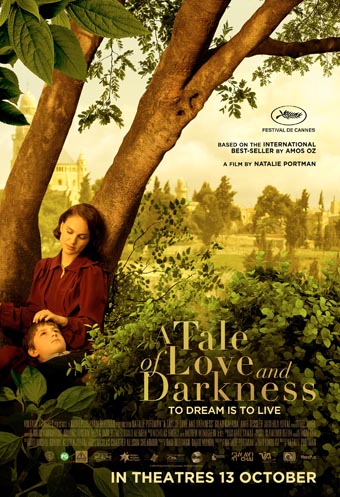
Movie Stills
